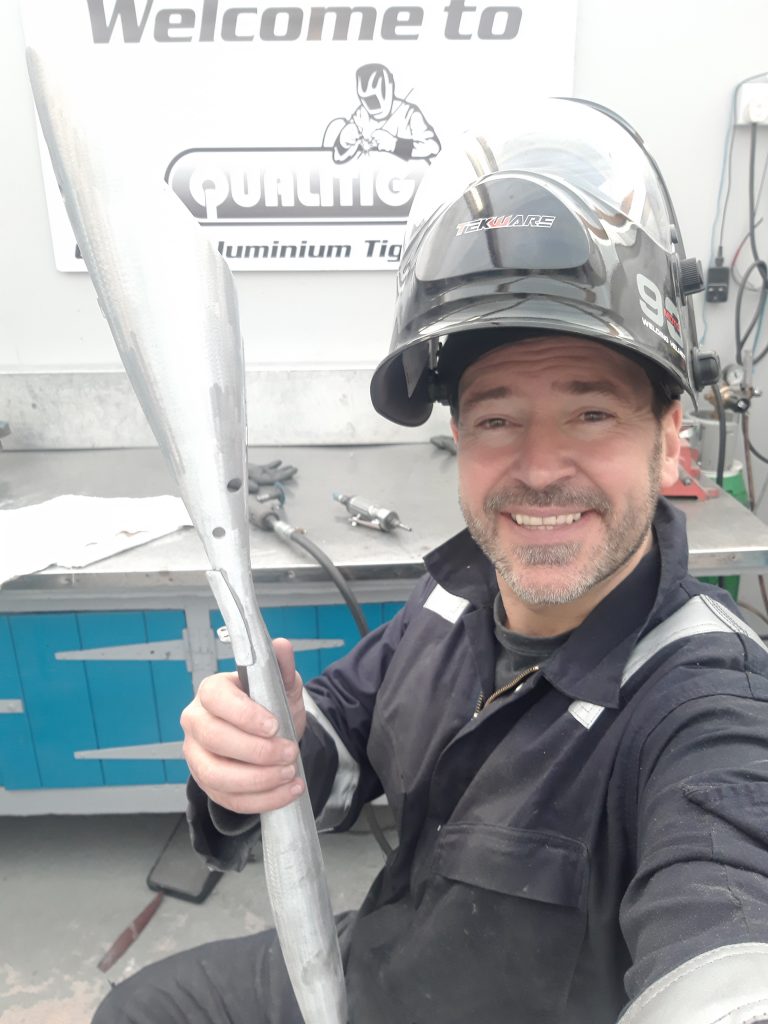Frequently Asked Questions
What is the role of a batch welding specialist in manufacturing?
The role of a batch welding specialist in manufacturing involves executing precise welding tasks on multiple components, ensuring quality and efficiency in production. They are crucial for maintaining standards and optimising workflows in the manufacturing process.
What are the duties of a batch welding specialist?
The duties of a batch welding specialist include preparing materials, executing precise welding techniques, inspecting welds for quality, and ensuring compliance with safety standards. They also collaborate with teams to meet project specifications and timelines.
What companies offer batch welding jobs in Coventry?
Companies offering batch welding jobs in Coventry include local manufacturing firms, automotive suppliers, and specialized welding workshops like Qualitig, which provides high-quality welding services and training opportunities.
What are the required skills for batch welding jobs in Coventry?
The required skills for batch welding jobs in Coventry include proficiency in various welding techniques, attention to detail, strong problem-solving abilities, and the capacity to work efficiently in a team-oriented environment.
What is a batch welding specialist in West Midlands?
A batch welding specialist in the West Midlands is an expert who focuses on performing welding tasks in batches, ensuring consistency and quality across multiple projects, often catering to both industrial and commercial needs.
How do I apply for batch welding jobs in Coventry?
To apply for batch welding jobs in Coventry, visit local job boards or company websites, submit your CV, and highlight relevant experience in welding and fabrication. Networking within the industry can also enhance your chances of finding opportunities.
What are the working hours for batch welding jobs in Coventry?
The working hours for batch welding jobs in Coventry typically run from 8:00 AM to 5:00 PM, Monday to Friday. However, availability may vary based on specific project requirements, so it's best to contact us for precise scheduling.
What skills are required for batch welding in West Midlands?
The skills required for batch welding in the West Midlands include proficiency in various welding techniques, attention to detail, strong problem-solving abilities, and the capacity to work efficiently in a team environment.
What qualifications are needed for batch welding?
The qualifications needed for batch welding typically include a relevant welding certification, practical experience, and knowledge of welding techniques and safety standards. Additional training in specific welding processes may also be beneficial.
What safety measures are essential in batch welding?
Essential safety measures in batch welding include proper ventilation, use of personal protective equipment (PPE) like helmets and gloves, regular inspection of equipment, and adherence to safe handling procedures to prevent accidents and injuries.
What materials are commonly used in batch welding?
The materials commonly used in batch welding include various metals such as steel, aluminium, and stainless steel, along with filler materials that enhance the strength and integrity of the welds.
How does batch welding differ from traditional welding?
Batch welding differs from traditional welding in that it focuses on producing multiple components simultaneously, enhancing efficiency and consistency, whereas traditional welding typically involves one-off projects with individual pieces being welded separately.
What industries require batch welding specialists?
Batch welding specialists are essential in various industries, including automotive, aerospace, construction, and manufacturing, where precision and efficiency in welding processes are crucial for producing high-quality products and components.
What are the career prospects for batch welding specialists?
The career prospects for batch welding specialists are promising, with increasing demand in various industries such as manufacturing, construction, and automotive. Skilled welders can expect competitive salaries and opportunities for advancement in their careers.
How can I improve my batch welding skills?
Improving your batch welding skills involves consistent practice, seeking feedback from experienced welders, and participating in hands-on training sessions. Additionally, studying welding techniques and safety protocols can significantly enhance your proficiency.
What tools are essential for batch welding?
The essential tools for batch welding include a welding machine, protective gear, clamps, and a selection of welding rods or wire. Additionally, having proper ventilation equipment and a workbench for stability enhances safety and efficiency during the welding process.
What are the challenges faced by batch welding specialists?
The challenges faced by batch welding specialists include maintaining consistent quality across multiple welds, managing time efficiently to meet deadlines, and ensuring adherence to safety standards while working with various materials and techniques.
What is the future of batch welding technology?
The future of batch welding technology is poised for significant advancements, with increased automation, improved precision, and enhanced efficiency driving the industry towards more sustainable and cost-effective solutions.
How can batch welding improve manufacturing efficiency?
Batch welding can significantly enhance manufacturing efficiency by streamlining production processes, reducing setup times, and allowing for simultaneous welding of multiple components, ultimately leading to increased output and lower operational costs.
What are the best practices for batch welding?
The best practices for batch welding include ensuring consistent settings for temperature and speed, maintaining proper joint preparation, utilizing appropriate filler materials, and regularly inspecting welds for quality and integrity.
How do I troubleshoot common batch welding issues?
Troubleshooting common batch welding issues involves identifying defects such as inconsistent bead appearance, porosity, or distortion. Check equipment settings, ensure proper material preparation, and maintain a clean work environment to enhance weld quality and consistency.
What is the demand for batch welding jobs?
The demand for batch welding jobs is strong, driven by the need for skilled welders in various industries, including manufacturing and construction, where precision and quality are essential.
How can I network with batch welding professionals?
Networking with batch welding professionals can be achieved by attending industry trade shows, joining welding associations, and participating in online forums or social media groups dedicated to welding. Engaging in workshops and local meetups also helps build valuable connections.

